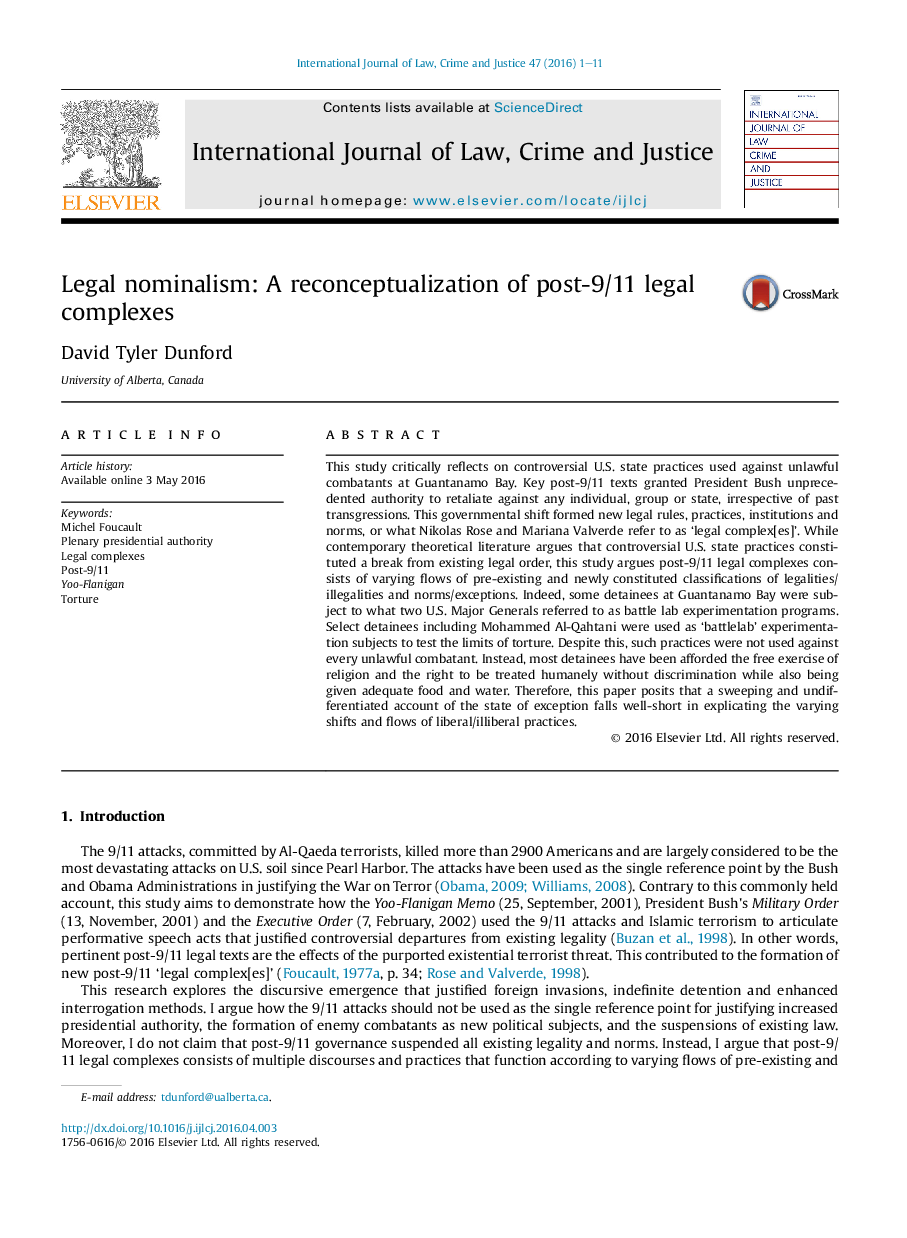| Article ID | Journal | Published Year | Pages | File Type |
|---|---|---|---|---|
| 5123825 | International Journal of Law, Crime and Justice | 2016 | 11 Pages |
This study critically reflects on controversial U.S. state practices used against unlawful combatants at Guantanamo Bay. Key post-9/11 texts granted President Bush unprecedented authority to retaliate against any individual, group or state, irrespective of past transgressions. This governmental shift formed new legal rules, practices, institutions and norms, or what Nikolas Rose and Mariana Valverde refer to as 'legal complex[es]'. While contemporary theoretical literature argues that controversial U.S. state practices constituted a break from existing legal order, this study argues post-9/11 legal complexes consists of varying flows of pre-existing and newly constituted classifications of legalities/illegalities and norms/exceptions. Indeed, some detainees at Guantanamo Bay were subject to what two U.S. Major Generals referred to as battle lab experimentation programs. Select detainees including Mohammed Al-Qahtani were used as 'battlelab' experimentation subjects to test the limits of torture. Despite this, such practices were not used against every unlawful combatant. Instead, most detainees have been afforded the free exercise of religion and the right to be treated humanely without discrimination while also being given adequate food and water. Therefore, this paper posits that a sweeping and undifferentiated account of the state of exception falls well-short in explicating the varying shifts and flows of liberal/illiberal practices.
